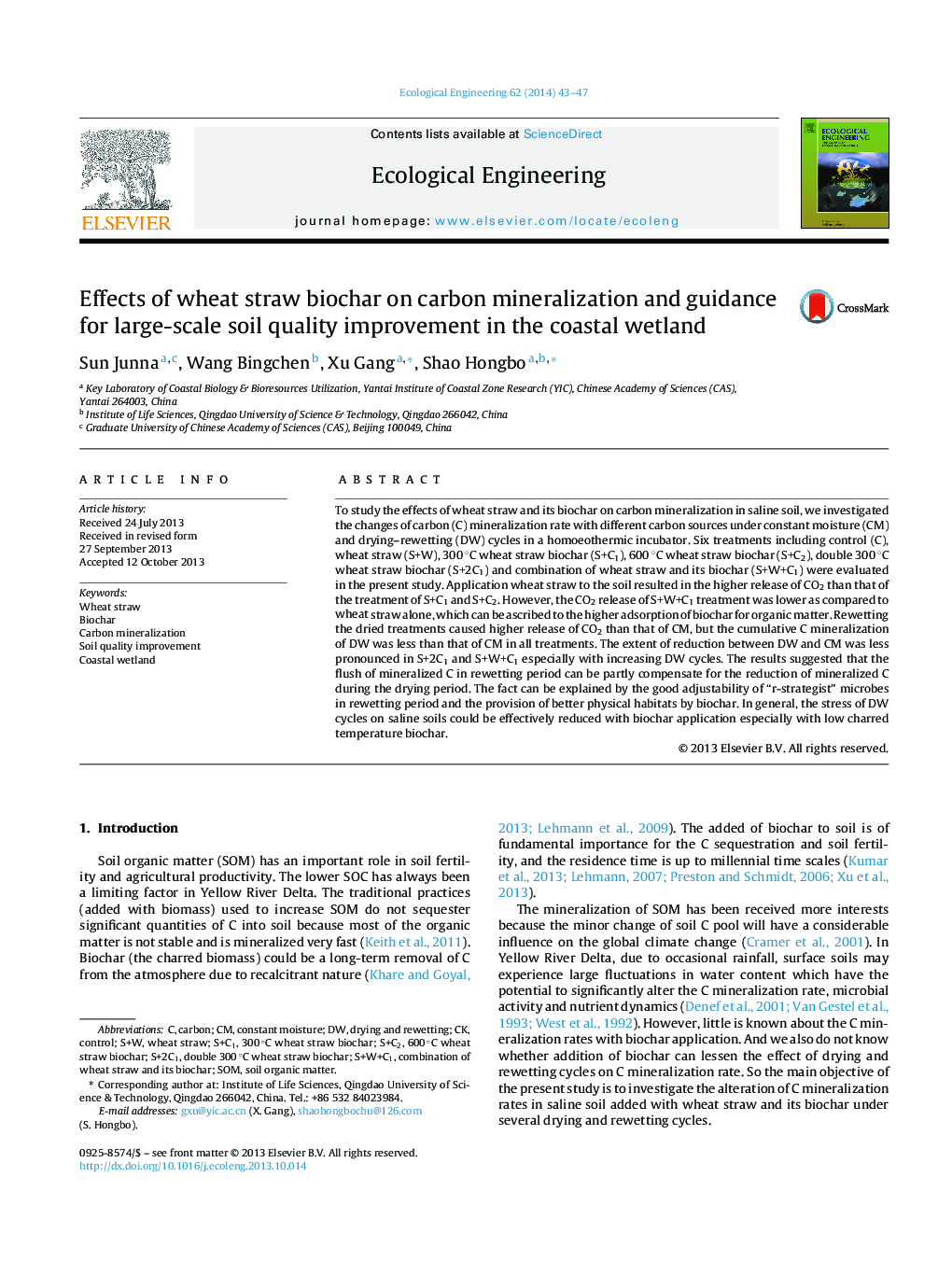| Article ID | Journal | Published Year | Pages | File Type |
|---|---|---|---|---|
| 6302241 | Ecological Engineering | 2014 | 5 Pages |
Abstract
To study the effects of wheat straw and its biochar on carbon mineralization in saline soil, we investigated the changes of carbon (C) mineralization rate with different carbon sources under constant moisture (CM) and drying-rewetting (DW) cycles in a homoeothermic incubator. Six treatments including control (C), wheat straw (S+W), 300 °C wheat straw biochar (S+C1), 600 °C wheat straw biochar (S+C2), double 300 °C wheat straw biochar (S+2C1) and combination of wheat straw and its biochar (S+W+C1) were evaluated in the present study. Application wheat straw to the soil resulted in the higher release of CO2 than that of the treatment of S+C1 and S+C2. However, the CO2 release of S+W+C1 treatment was lower as compared to wheat straw alone, which can be ascribed to the higher adsorption of biochar for organic matter. Rewetting the dried treatments caused higher release of CO2 than that of CM, but the cumulative C mineralization of DW was less than that of CM in all treatments. The extent of reduction between DW and CM was less pronounced in S+2C1 and S+W+C1 especially with increasing DW cycles. The results suggested that the flush of mineralized C in rewetting period can be partly compensate for the reduction of mineralized C during the drying period. The fact can be explained by the good adjustability of “r-strategist” microbes in rewetting period and the provision of better physical habitats by biochar. In general, the stress of DW cycles on saline soils could be effectively reduced with biochar application especially with low charred temperature biochar.
Keywords
Related Topics
Life Sciences
Agricultural and Biological Sciences
Ecology, Evolution, Behavior and Systematics
Authors
Sun Junna, Wang Bingchen, Xu Gang, Shao Hongbo,
